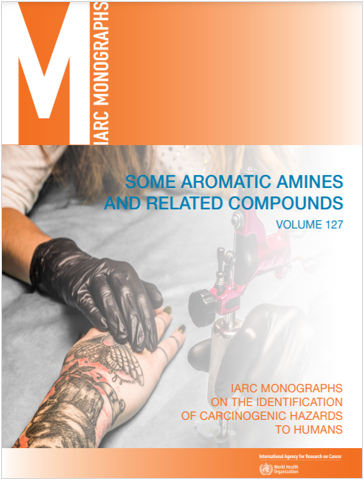| 1 x afterRenderRawModule mod_menu (Temi) (292.94KB) (15.18%) | 37.39ms |
| 1 x afterRenderComponent com_content (508.98KB) (12.74%) | 31.37ms |
| 1 x afterRenderRawModule mod_menu (Main Menu) (21.86KB) (11.34%) | 27.92ms |
| 1 x After Access::preloadPermissions (com_content) (16.77MB) (10.28%) | 25.32ms |
| 1 x afterRender (729.65KB) (8.96%) | 22.06ms |
| 1 x afterInitialise (3.34MB) (8.31%) | 20.46ms |
| 1 x beforeRenderRawModule mod_login (Accedi all'area riservata) (1.75MB) (4.85%) | 11.95ms |
| 1 x afterRenderRawModule mod_articles_categories (Chemicals) (365.23KB) (4.4%) | 10.84ms |
| 1 x afterRoute (362.18KB) (2.62%) | 6.46ms |
| 1 x afterRenderRawModule mod_menu (Documenti Abbonati) (164.93KB) (2.42%) | 5.96ms |
| 1 x afterLoad (86.09KB) (1.77%) | 4.36ms |
| 1 x afterRenderRawModule mod_menu (Top Menu) (31.08KB) (1.69%) | 4.17ms |
| 1 x afterRenderRawModule mod_menu (Policies) (23.48KB) (1.62%) | 3.99ms |
| 1 x afterRenderRawModule mod_menu (Marketing) (20.39KB) (1.42%) | 3.49ms |
| 1 x beforeRenderRawModule mod_menu (Main Menu) (33.91KB) (1.36%) | 3.36ms |
| 1 x afterRenderRawModule mod_menu (Store) (18.38KB) (1.23%) | 3.04ms |
| 1 x afterRenderRawModule mod_menu (Social) (60.09KB) (1.21%) | 2.98ms |
| 1 x afterRenderRawModule mod_menu (Media) (14.41KB) (1.04%) | 2.56ms |
| 1 x afterRenderRawModule mod_login (Accedi all'area riservata) (62.77KB) (0.99%) | 2.45ms |
| 1 x afterRenderRawModule mod_menu (Info) (11.67KB) (0.83%) | 2.04ms |
| 1 x Before Access::getAssetRules (id:30511 name:com_content.article.14873) (514.65KB) (0.37%) | 914μs |
| 1 x Before Access::preloadComponents (all components) (34.53KB) (0.33%) | 804μs |
| 1 x beforeRenderComponent com_content (37.2KB) (0.29%) | 712μs |
| 1 x afterRenderModule mod_menu (Main Menu) (11.27KB) (0.23%) | 575μs |
| 1 x afterRenderRawModule mod_custom (Certifico s.r.l.) (4.22KB) (0.21%) | 528μs |
| 1 x afterRenderModule mod_articles_categories (Chemicals) (10.5KB) (0.21%) | 506μs |
| 1 x afterRenderModule mod_custom (Certifico s.r.l.) (3.36KB) (0.19%) | 479μs |
| 1 x afterRenderModule mod_menu (Social) (3.92KB) (0.19%) | 473μs |
| 1 x afterRenderModule mod_menu (Info) (3.05KB) (0.19%) | 473μs |
| 1 x afterRenderModule mod_menu (Documenti Abbonati) (3.94KB) (0.19%) | 472μs |
| 1 x afterRenderModule mod_menu (Marketing) (3.3KB) (0.19%) | 471μs |
| 1 x afterRenderModule mod_menu (Policies) (3.3KB) (0.19%) | 471μs |
| 1 x afterRenderModule mod_menu (Media) (3.11KB) (0.19%) | 470μs |
| 1 x afterRenderModule mod_menu (Store) (3.3KB) (0.19%) | 467μs |
| 1 x afterRenderModule mod_menu (Temi) (22.67KB) (0.19%) | 465μs |
| 1 x afterRenderModule mod_custom (Titolo "Chemicals") (2.67KB) (0.18%) | 454μs |
| 1 x beforeRenderRawModule mod_menu (Social) (41.43KB) (0.17%) | 411μs |
| 1 x After Access::preloadComponents (all components) (115.88KB) (0.16%) | 401μs |
| 1 x afterRenderModule mod_login (Accedi all'area riservata) (5.95KB) (0.13%) | 308μs |
| 1 x afterDispatch (2.44KB) (0.09%) | 220μs |
| 1 x afterRenderModule mod_custom (Regolamento Macchine) (5.08KB) (0.07%) | 171μs |
| 1 x After Access::getAssetRules (id:30511 name:com_content.article.14873) (12.67KB) (0.06%) | 159μs |
| 1 x afterRenderRawModule mod_custom (Titolo "Chemicals") (992B) (0.04%) | 110μs |
| 1 x afterRenderRawModule mod_custom (Regolamento Macchine) (1.03KB) (0.04%) | 109μs |
| 1 x afterRenderRawModule mod_custom (D. Lgs. 81/2008 - TUSSL) (928B) (0.03%) | 84μs |
| 1 x afterRenderRawModule mod_custom (CEM4 || Ultimo aggiornamento) (1.03KB) (0.03%) | 83μs |
| 1 x afterRenderRawModule mod_custom (Codice Prevenzione Incendi | RTO II) (3.41KB) (0.03%) | 82μs |
| 1 x afterRenderRawModule mod_custom (TUA | Testo Unico Ambiente) (928B) (0.03%) | 81μs |
| 1 x afterRenderRawModule mod_custom (TUSSL / Link) (976B) (0.03%) | 80μs |
| 1 x afterRenderRawModule mod_custom (Glossario Certifico HSE) (1.03KB) (0.03%) | 80μs |
| 1 x afterRenderRawModule mod_custom (Direttiva macchine e norme armonizzate) (1.05KB) (0.03%) | 80μs |
| 1 x afterRenderRawModule mod_custom (MOCA - GMP | Consolidato) (1.03KB) (0.03%) | 80μs |
| 1 x afterRenderRawModule mod_custom (D. Lgs. 231/2001 - Responsabilità amministrativa enti) (960B) (0.03%) | 80μs |
| 1 x afterRenderRawModule mod_custom (D. Lgs. 196/2003 - Codice protezione dati personali | GDPR) (960B) (0.03%) | 80μs |
| 1 x afterRenderRawModule mod_custom (DM 21 Marzo 1973 | MOCA IT) (1.03KB) (0.03%) | 79μs |
| 1 x afterRenderRawModule mod_custom (Abbonamento Full Plus) (912B) (0.03%) | 79μs |
| 1 x afterRenderRawModule mod_custom (MEPA) (960B) (0.03%) | 79μs |
| 1 x afterRenderModule mod_custom (Glossario Certifico HSE) (3.77KB) (0.03%) | 79μs |
| 1 x afterRenderRawModule mod_custom (D. Lgs. 101/2020 - Protezione esposizione radiazioni ionizzanti) (960B) (0.03%) | 79μs |
| 1 x afterRenderRawModule mod_custom (Certifico ADR) (1.02KB) (0.03%) | 79μs |
| 1 x afterRenderRawModule mod_custom (Codice Unico Sicurezza) (928B) (0.03%) | 79μs |
| 1 x afterRenderRawModule mod_custom (Abbonamento Full) (912B) (0.03%) | 79μs |
| 1 x afterRenderRawModule mod_custom (Store Certifico) (976B) (0.03%) | 79μs |
| 1 x afterRenderRawModule mod_custom (Food Safety book) (12.02KB) (0.03%) | 79μs |
| 1 x afterRenderModule mod_menu (Top Menu) (4.11KB) (0.03%) | 72μs |
| 1 x afterRenderModule mod_custom (D. Lgs. 81/2008 - TUSSL) (4.02KB) (0.03%) | 68μs |
| 1 x afterRenderModule mod_custom (Codice Prevenzione Incendi | RTO II) (4.16KB) (0.03%) | 68μs |
| 1 x afterRenderModule mod_custom (CEM4 || Ultimo aggiornamento) (3.91KB) (0.03%) | 66μs |
| 1 x afterRenderModule mod_custom (TUA | Testo Unico Ambiente) (4.03KB) (0.03%) | 65μs |
| 1 x afterRenderModule mod_custom (D. Lgs. 196/2003 - Codice protezione dati personali | GDPR) (4.44KB) (0.03%) | 65μs |
| 1 x afterRenderModule mod_custom (D. Lgs. 231/2001 - Responsabilità amministrativa enti) (4.42KB) (0.03%) | 64μs |
| 1 x afterRenderModule mod_custom (TUSSL / Link) (3.64KB) (0.03%) | 64μs |
| 1 x afterRenderModule mod_custom (Certifico ADR) (3.89KB) (0.03%) | 63μs |
| 1 x afterRenderModule mod_custom (D. Lgs. 101/2020 - Protezione esposizione radiazioni ionizzanti) (4.44KB) (0.03%) | 63μs |
| 1 x afterRenderModule mod_custom (Abbonamento Full) (4.89KB) (0.03%) | 63μs |
| 1 x afterRenderModule mod_custom (Direttiva macchine e norme armonizzate) (4.16KB) (0.03%) | 62μs |
| 1 x afterRenderModule mod_custom (MOCA - GMP | Consolidato) (4.02KB) (0.03%) | 62μs |
| 1 x afterRenderModule mod_custom (Codice Unico Sicurezza) (4.02KB) (0.03%) | 62μs |
| 1 x afterRenderModule mod_custom (Abbonamento Full Plus) (4.14KB) (0.03%) | 62μs |
| 1 x afterRenderModule mod_custom (Food Safety book) (4.02KB) (0.03%) | 62μs |
| 1 x afterRenderModule mod_custom (MEPA) (3.75KB) (0.03%) | 62μs |
| 1 x afterRenderModule mod_custom (DM 21 Marzo 1973 | MOCA IT) (4.03KB) (0.02%) | 61μs |
| 1 x afterRenderModule mod_custom (Store Certifico) (3.58KB) (0.02%) | 61μs |
| 1 x beforeRenderRawModule mod_menu (Top Menu) (2.56KB) (0.02%) | 50μs |
| 1 x beforeRenderRawModule mod_custom (Titolo "Chemicals") (2.2KB) (0.01%) | 26μs |
| 1 x beforeRenderRawModule mod_menu (Policies) (616B) (0.01%) | 25μs |
| 1 x beforeRenderRawModule mod_menu (Documenti Abbonati) (1.96KB) (0.01%) | 23μs |
| 1 x beforeRenderRawModule mod_menu (Info) (440B) (0.01%) | 23μs |
| 1 x beforeRenderRawModule mod_custom (Certifico s.r.l.) (2.29KB) (0.01%) | 22μs |
| 1 x beforeRenderRawModule mod_menu (Temi) (904B) (0.01%) | 22μs |
| 1 x beforeRenderRawModule mod_custom (Regolamento Macchine) (9.7KB) (0%) | 11μs |
| 1 x beforeRenderRawModule mod_menu (Media) (912B) (0%) | 9μs |
| 1 x beforeRenderRawModule mod_menu (Store) (912B) (0%) | 8μs |
| 1 x beforeRenderRawModule mod_articles_categories (Chemicals) (2.36KB) (0%) | 8μs |
| 1 x beforeRenderRawModule mod_menu (Marketing) (896B) (0%) | 8μs |
| 1 x Before Access::preloadPermissions (com_content) (1.51KB) (0%) | 7μs |
| 1 x beforeRenderRawModule mod_custom (D. Lgs. 81/2008 - TUSSL) (9.5KB) (0%) | 7μs |
| 1 x beforeRenderRawModule mod_custom (Codice Prevenzione Incendi | RTO II) (2.25KB) (0%) | 6μs |
| 1 x beforeRenderRawModule mod_custom (TUSSL / Link) (1.48KB) (0%) | 6μs |
| 1 x beforeRenderRawModule mod_custom (CEM4 || Ultimo aggiornamento) (2KB) (0%) | 6μs |
| 1 x beforeRenderRawModule mod_custom (Direttiva macchine e norme armonizzate) (1.27KB) (0%) | 6μs |
| 1 x beforeRenderRawModule mod_custom (TUA | Testo Unico Ambiente) (2.38KB) (0%) | 5μs |
| 1 x beforeRenderRawModule mod_custom (Glossario Certifico HSE) (2.38KB) (0%) | 5μs |
| 1 x beforeRenderRawModule mod_custom (D. Lgs. 231/2001 - Responsabilità amministrativa enti) (2.09KB) (0%) | 5μs |
| 1 x beforeRenderRawModule mod_custom (D. Lgs. 196/2003 - Codice protezione dati personali | GDPR) (2.22KB) (0%) | 5μs |
| 1 x beforeRenderRawModule mod_custom (D. Lgs. 101/2020 - Protezione esposizione radiazioni ionizzanti) (2.72KB) (0%) | 5μs |
| 1 x beforeRenderRawModule mod_custom (Certifico ADR) (2.77KB) (0%) | 5μs |
| 1 x beforeRenderRawModule mod_custom (Codice Unico Sicurezza) (2.25KB) (0%) | 5μs |
| 1 x beforeRenderRawModule mod_custom (DM 21 Marzo 1973 | MOCA IT) (1.63KB) (0%) | 5μs |
| 1 x beforeRenderRawModule mod_custom (Abbonamento Full) (2.39KB) (0%) | 5μs |
| 1 x beforeRenderRawModule mod_custom (Store Certifico) (3.27KB) (0%) | 5μs |
| 1 x beforeRenderRawModule mod_custom (Food Safety book) (2.52KB) (0%) | 5μs |
| 1 x beforeRenderRawModule mod_custom (MEPA) (2.05KB) (0%) | 5μs |
| 1 x beforeRenderRawModule mod_custom (Abbonamento Full Plus) (2.38KB) (0%) | 4μs |
| 1 x beforeRenderRawModule mod_custom (MOCA - GMP | Consolidato) (2.5KB) (0%) | 4μs |
| 1 x beforeRenderModule mod_menu (Store) (704B) (0%) | 3μs |
| 1 x beforeRenderModule mod_menu (Top Menu) (704B) (0%) | 3μs |
| 1 x beforeRenderModule mod_login (Accedi all'area riservata) (736B) (0%) | 2μs |
| 1 x beforeRenderModule mod_menu (Main Menu) (704B) (0%) | 2μs |
| 1 x beforeRenderModule mod_menu (Social) (704B) (0%) | 2μs |
| 1 x beforeRenderModule mod_menu (Media) (704B) (0%) | 2μs |
| 1 x beforeRenderModule mod_menu (Policies) (704B) (0%) | 2μs |
| 1 x beforeRenderModule mod_custom (Regolamento Macchine) (720B) (0%) | 2μs |
| 1 x beforeRenderModule mod_menu (Temi) (704B) (0%) | 2μs |
| 1 x beforeRenderModule mod_menu (Info) (704B) (0%) | 2μs |
| 1 x beforeRenderModule mod_menu (Marketing) (704B) (0%) | 2μs |
| 1 x beforeRenderModule mod_custom (Certifico s.r.l.) (720B) (0%) | 2μs |
| 1 x beforeRenderModule mod_menu (Documenti Abbonati) (720B) (0%) | 2μs |
| 1 x beforeRenderModule mod_articles_categories (Chemicals) (704B) (0%) | 2μs |
| 1 x beforeRenderModule mod_custom (Titolo "Chemicals") (720B) (0%) | 2μs |
| 1 x beforeRenderModule mod_custom (D. Lgs. 81/2008 - TUSSL) (720B) (0%) | 1μs |
| 1 x beforeRenderModule mod_custom (D. Lgs. 101/2020 - Protezione esposizione radiazioni ionizzanti) (768B) (0%) | 1μs |
| 1 x beforeRenderModule mod_custom (Codice Prevenzione Incendi | RTO II) (736B) (0%) | 1μs |
| 1 x beforeRenderModule mod_custom (TUA | Testo Unico Ambiente) (736B) (0%) | 1μs |
| 1 x beforeRenderModule mod_custom (TUSSL / Link) (720B) (0%) | 1μs |
| 1 x beforeRenderModule mod_custom (Glossario Certifico HSE) (720B) (0%) | 1μs |
| 1 x beforeRenderModule mod_custom (CEM4 || Ultimo aggiornamento) (736B) (0%) | 1μs |
| 1 x beforeRenderModule mod_custom (D. Lgs. 231/2001 - Responsabilità amministrativa enti) (752B) (0%) | 1μs |
| 1 x beforeRenderModule mod_custom (D. Lgs. 196/2003 - Codice protezione dati personali | GDPR) (768B) (0%) | 1μs |
| 1 x beforeRenderModule mod_custom (Direttiva macchine e norme armonizzate) (736B) (0%) | 1μs |
| 1 x beforeRenderModule mod_custom (Certifico ADR) (720B) (0%) | 1μs |
| 1 x beforeRenderModule mod_custom (DM 21 Marzo 1973 | MOCA IT) (736B) (0%) | 1μs |
| 1 x beforeRenderModule mod_custom (Abbonamento Full) (720B) (0%) | 1μs |
| 1 x beforeRenderModule mod_custom (Abbonamento Full Plus) (720B) (0%) | 1μs |
| 1 x beforeRenderModule mod_custom (Food Safety book) (720B) (0%) | 1μs |
| 1 x beforeRenderModule mod_custom (MEPA) (704B) (0%) | 1μs |
| 1 x beforeRenderModule mod_custom (MOCA - GMP | Consolidato) (736B) (0%) | 0μs |
| 1 x beforeRenderModule mod_custom (Codice Unico Sicurezza) (720B) (0%) | 0μs |
| 1 x beforeRenderModule mod_custom (Store Certifico) (720B) (0%) | 0μs |




















